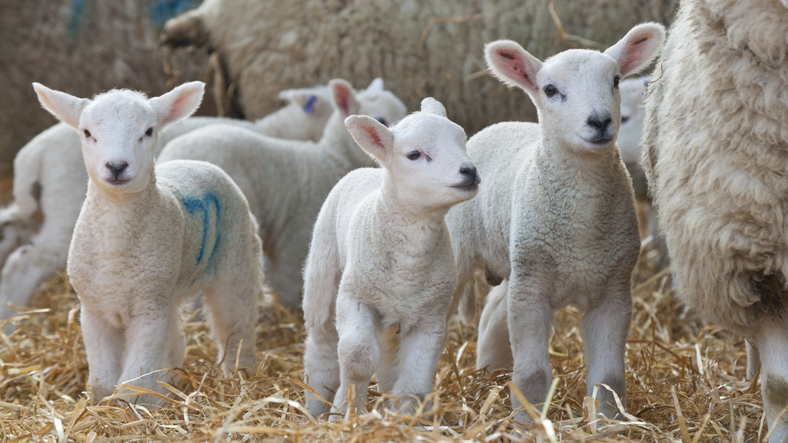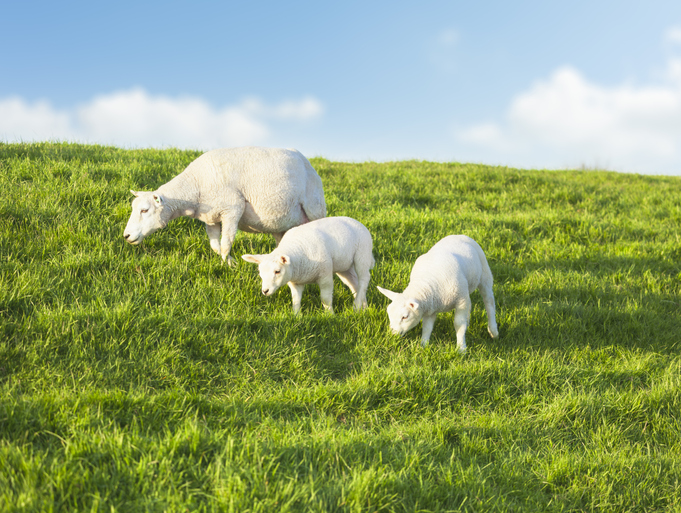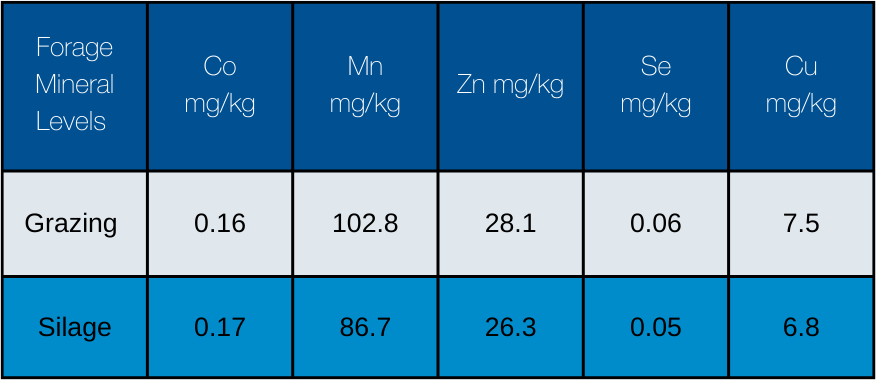The importance of balancing energy and protein requirements in lamb diets throughout growth cannot be understated. The same principles should be applied to ensure vitamins and minerals are balanced responsibly, enabling optimum utilisation of the total diet.
Each trace mineral has a different role to play in the body, and although the requirements may seem small in quantity, they are vital to the health and performance of all animals.




Selenium and vitamin E are important for immunity and their antioxidant capacity, forages grown in the UK are commonly deficient in selenium and it is, therefore, important that when supplementing the lamb, a product containing good levels of selenium and vitamin E is chosen. White muscle disease (WMD) can seriously impact the heart and lungs leading to poor growth and often death.
Cobalt and vitamin B12 are essential elements for lambs to thrive. This is due to the vital role they play in energy metabolism and, therefore, efficient use of the ration. Vitamin B12 is produced by rumen microbes from cobalt; in young lambs, rumen development and, therefore, function will not be sufficient to supply total vitamin B12 requirements and, as a result, supplementation of vitamin B12 is required in any pre-weaning lamb diets to avoid deficiency. Once weaned, cobalt alone is sufficient to supply B12 requirements. Vitamin B1 supplementation should also be considered in early life nutrition due to the potential for CCN (cerebrocortical necrosis) development.
Copper is often not talked about in lamb diets yet is required for several functions, however, due to sufficient background levels in forage and feed, extra supplementation is rarely required. It is important for those farms in high sulphur or molybdenum areas to consider copper status of a flock with a veterinarian, especially if farms are experiencing swayback.
Iodine levels in lamb diets can also be a challenge especially in systems utilising brassicas to grow or finish lambs. The presence of goitrogens can disrupt thyroid hormone production. Thyroid hormone is vital for energy metabolism and ration utilisation. With high levels of goitrogens comes significant challenges to lamb growth rates, as such, ensuring sufficient Iodine inclusion is important.
Diets based on forage alone can be deficient in essential minerals, therefore, supplementation is often required. This can come in a variety of forms; free access minerals, to mineral premixes included in compound feed.


The above table shows the average micromineral content of grazing and grass silage for previous years. Grass silages can provide around half of the requirement for cobalt and zinc, but the requirement for selenium is six times greater than the supply from grass silage, meaning supplementation on forage-based diets is always advised.
Key points:
• Always ensure vitamin B12 inclusion with a consideration towards vitamin B1, especially in young lamb diets.
• Ensure balanced mineral and vitamin supply; oversupply is just as bad as undersupply.
• Trace minerals play several roles in lamb growth and production.
• Forage alone is a poor source of minerals and may lead to deficiencies.












